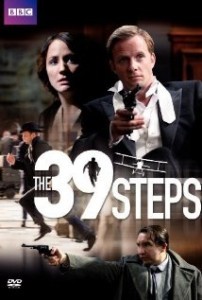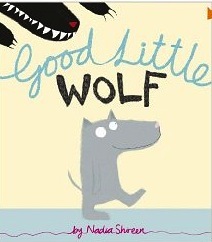A Rant About Endings
Another blast from the Argh Draft Vault:
I have been thinking about endings lately because I saw a TV movie and read a children’s book, both of which had endings that were horribly wrong, not because they didn’t turn out the way I expected but because they didn’t fit their stories. I think that endings, both in story and in life, have to make sense because otherwise they really don’t end, they lurk in the background while your subconscious tries to find the justice in them, like trying to get a popcorn kernel out of the back molar of your brain.
The thing is, stories determine their own endings. The way the story is told, the way a life is lived, pretty much sets up the big finish. You can’t slap a happy ending on a story that didn’t deserve it because it makes the whole story a lie, and you can’t put a tragic ending on a story to make it more important because that betrays the story itself. If a story has earned a happy ending, give it to it, don’t sell it down the river for literary cred or worse, cool, ironic detachment.
Warning: Spoilers ahead. Big ones.
THE THIRTY-NINE STEPS The first bad ending was in the 2008 remake of The 39 Steps. I’m a huge fan of Hitchcock’s 1935 version of Buchan’s book, but I was open to a new interpretation and it was fun for the most part even if it did take unnecessary liberties. There was a dashing hero, feisty heroine, evil villains, great cars . . . what’s not to love? Richard Hannay is given a code book by a spy who is then murdered, and the killers (German spies before WW1) frame Richard for the crime. He goes on the run to Scotland because that’s where the German spy ring is, trying to decode the book as he goes so he can find them and expose them, ducking the police and the Germans and most of Scotland on the way. Once there he meets Victoria, an out-spoken feminist/activist, and they do the requisite wrangling as they fall in love while stealing cars and blowing up oubliettes. It’s not deep or historically accurate, but it’s fun, albeit leisurely fun, made more fun because it turns out Victoria is a British spy and a dab hand with a revolver among other skills.
The first bad ending was in the 2008 remake of The 39 Steps. I’m a huge fan of Hitchcock’s 1935 version of Buchan’s book, but I was open to a new interpretation and it was fun for the most part even if it did take unnecessary liberties. There was a dashing hero, feisty heroine, evil villains, great cars . . . what’s not to love? Richard Hannay is given a code book by a spy who is then murdered, and the killers (German spies before WW1) frame Richard for the crime. He goes on the run to Scotland because that’s where the German spy ring is, trying to decode the book as he goes so he can find them and expose them, ducking the police and the Germans and most of Scotland on the way. Once there he meets Victoria, an out-spoken feminist/activist, and they do the requisite wrangling as they fall in love while stealing cars and blowing up oubliettes. It’s not deep or historically accurate, but it’s fun, albeit leisurely fun, made more fun because it turns out Victoria is a British spy and a dab hand with a revolver among other skills.
Okay, BIG ENDING SPOILER HERE.
So they defeat the Germans (yeah, we knew they would) and Richard embraces Victoria and tells her he intends to court her properly when they get back to London and she smiles and then one of the Germans shoots her in the back and she falls into the loch and Richard dives in and goes crazy trying to find her, finally giving up and staring heartbroken out to sea. That’s not the part that made it a wall banger, though. It didn’t make sense at all, but there were large parts of the story that didn’t make sense, so I just thought, “This is a terrible adaptation.”
But no, the next scene/last scene is four months later, WW1 has started, and Richard is in London at the station in uniform, preparing to ship out to a war that’s going to last four years, wipe out most of a generation of young men, and completely change the face of Britain (and everywhere else in the Western world for that matter, but this story is about England), a huge, tragic waste that will undoubtedly make him a different man. He runs into Victoria’s brother, who says, “She wanted to say good-bye” and points across the station to Victoria, standing behind some baggage. Evidently she faked her death for national security and told her brother but not Richard. Because she couldn’t trust the man she loved. But now she can. Or something. Then the brother says, “She’ll see you after the war,” and I’m thinking, “The hell she will, she’s a freaking spy and you’re going into battle and even if you both survive you’re not going to be the same people and also, hello, it’s FOUR FUCKING YEARS.” But Richard smiles and waves and then Victoria disappears again and there’s your happy ending.
This does not makes sense. If it made sense for Victoria to die, I’d have been fine with it. If it was crucial for Victoria to go undercover, I’d have handled it. If the “we’ll meet again” coda had had any validity, I’d have cried and smiled with Richard. But it was just the dumbest writing I’d ever seen on TV (and that’s saying something). I don’t have to have a Happily Ever After, but if I’m staring at the screen saying, “WHAT THE HELL IS THIS CRAP?” the rest of the story is ruined. Even if everything up to there is stellar (it wasn’t), a bad ending is like a bad apple, it spoils the whole lot. (See also the penultimate scene with the princess in Kingsman; thank god for the last scene of Eggsy in the bar.)
THE GOOD LITTLE WOLF Still reeling from that, I picked up my mail the next day and found a book I’d ordered for the grandkids, The Good Little Wolf. I got suckered into this because I loved the illustrations, truly fabulous drawings. It’s about a good little wolf who is always nice to people until he meets a big bad wolf who tells him that he’s doing it wrong. So he tries to be bad, but he’s bad in his own way so he ends up being good anyway. Finally the BBW goes a step too far and tries to eat Grandma, and the good little wolf fights back and saves the day, and then invites the BBW to have tea with him and Grandma to make peace. And the wolf accepts and they have tea and cake. and the good little wolf makes the big bad wolf promise to never eat anybody again. And the big bad wolf promises.
Still reeling from that, I picked up my mail the next day and found a book I’d ordered for the grandkids, The Good Little Wolf. I got suckered into this because I loved the illustrations, truly fabulous drawings. It’s about a good little wolf who is always nice to people until he meets a big bad wolf who tells him that he’s doing it wrong. So he tries to be bad, but he’s bad in his own way so he ends up being good anyway. Finally the BBW goes a step too far and tries to eat Grandma, and the good little wolf fights back and saves the day, and then invites the BBW to have tea with him and Grandma to make peace. And the wolf accepts and they have tea and cake. and the good little wolf makes the big bad wolf promise to never eat anybody again. And the big bad wolf promises.
So I’m thinking, my grandkids are going to love this book. Then I turn the last page which is the Big Bad Wolf, sitting alone at the table with this huge stomach, saying, “I’ll start tomorrow” because he’s just eaten the good little wolf and grandma.
You know, I’m good with irony. I’m great with snark. And I understand that just like the good little wolf couldn’t change to be bad because it was against his nature, so that big bad wolf couldn’t change to be good. I get all that. But I liked that good little wolf, I attached to that good little wolf, and having him die at the end is not okay. Sweet Jesus, DO NOT KILL THE HERO FOR NO DAMN REASON, PEOPLE. I’m sure the author thought she was being clever as all hell, but she violated story. And yes, I know dark stories are good for kids, I read Where the Wild Things Are to Mollie many times, but the point is that good dark stories should still have just endings. Sendak did not kill his hero because his hero had fought the good fight and deserved to sail home. The good little wolf fought the good fight and got eaten because the author thought that was funny. NOT FUNNY.
So the moral is Do Not Fuck With The Ending To Be Clever. It’s not clever, it’s stupid. I’m still annoyed with Susan Isaacs for killing off one of her heroines by having her get hit by a bus at the end of the book because “sometimes people die.” Yes, sometimes people die for no reason in real life, but fiction is supposed to be better than real life, it’s supposed to make sense. The ending is inherent in the story you tell; if you decide to violate that, you’re violating your story which is going to leave your reader sick to her or his stomach and very unlikely to read you again.
Endings: the most important part of the story. If you lose your reader there, she’ll never come back because you don’t deserve her.
The post A Rant About Endings appeared first on Argh Ink.




